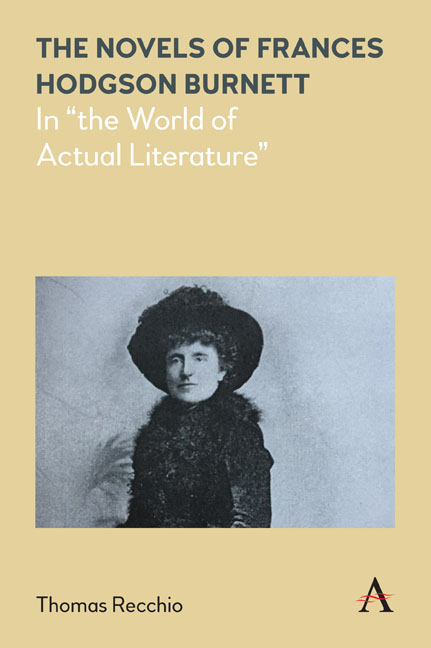Book contents
- Frontmatter
- Contents
- Acknowledgments
- Introduction
- Chapter One Learning from Elizabeth Gaskell
- Chapter Two Writing as an American: The Portrait of a Washington Lady
- Chapter Three Historical Dreamscapes and the Vicissitudes of Class: From A Lady of Quality to The Methods of Lady Walderhurst
- Chapter Four Transatlantic Alliances in The Shuttle and T. Tembarom
- Chapter Five After the Great War: Emerging from the Wasteland in The Head of the House of Coombe and Robin
- Bibliography
- Index
Chapter One - Learning from Elizabeth Gaskell
Published online by Cambridge University Press: 24 June 2020
- Frontmatter
- Contents
- Acknowledgments
- Introduction
- Chapter One Learning from Elizabeth Gaskell
- Chapter Two Writing as an American: The Portrait of a Washington Lady
- Chapter Three Historical Dreamscapes and the Vicissitudes of Class: From A Lady of Quality to The Methods of Lady Walderhurst
- Chapter Four Transatlantic Alliances in The Shuttle and T. Tembarom
- Chapter Five After the Great War: Emerging from the Wasteland in The Head of the House of Coombe and Robin
- Bibliography
- Index
Summary
At 18 years old in 1868, Burnett published her first stories in Godey's Lady's Book, a popular woman's magazine, and over the next four years “[S] he had stories published […] in every magazine in America, ‘except Harper’s, Scribner's and the Atlantic’ “ (Thwaite 37). She was hesitant to try the latter three magazines because, as she herself put it: “It would have seemed to me a kind of presumption to aspire to entering the actual world of literature” (cited in Thwaite 37). Despite the fact that she stated quite baldly when she sent out her first story to Ballou's Magazine that her “object is remuneration,” she developed a sense early on that writing strictly for the market was one thing while writing at the behest of her own imaginative impulses and aesthetic vision was another. One question she must have asked herself concerns the principles that might guide her hand were she to write with ambitions of “entering the actual world of literature.” We can infer an answer to that question in two ways: by considering the literary field in America in the 1870s and by careful reading of the novels (all first published serially before being published in volume form) she published with Scribner's in the 1870s and early 1880s. One thing we will find is deep points of contact between three of her first four published novels and three of Elizabeth Gaskell's first four published novels. How we might understand that depth of contact depends, in part, on our understanding of Burnett's response to her most immediate literary predecessors and how those predecessors were positioned in the literary field at the time.
Burnett was born in Manchester, England in 1849, the year after Chapman and Hall published Gaskell's first novel, Mary Barton, and Burnett lived in Manchester for the next 16 years until 1865, the year of Gaskell's death and the year Burnett emigrated to Tennessee. As her 1893 autobiography of her childhood shows, she read voraciously, everything from the Bible to histories of Greece and Rome to the novels of Sir Walter Scott and Charles Dickens. She read the odd periodical volume as well, even the “Blackwood” [sic Blackwood's Edinburgh Magazine], “a big book and heavy.”
- Type
- Chapter
- Information
- The Novels of Frances Hodgson BurnettIn "the World of Actual Literature", pp. 23 - 52Publisher: Anthem PressPrint publication year: 2020



